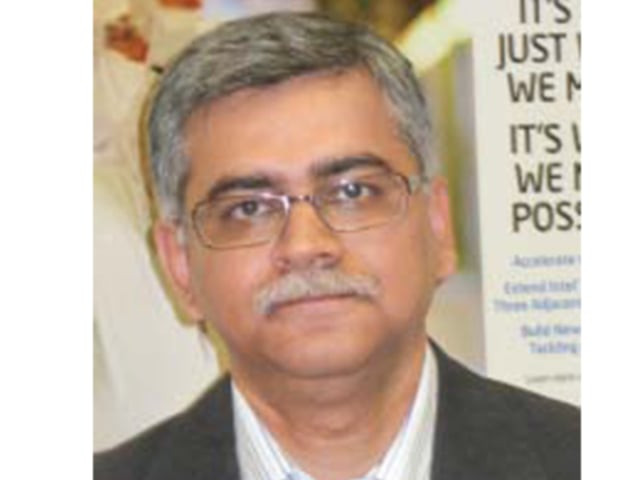‘Technology can help implement tax, renewable energy projects’
Intel hopes to capture smartphone market by 2015.

He asserted that the introduction of IT in organisations is helping improve the efficiency of government and non-government employees alike. “The idea of a civil servant sitting behind a rusty typewriter is being shed and even ‘old-school’ government departments are now implementing tech solutions in their everyday functions.”
Citing the use of embedded devices for the monitoring of point of sales terminals and collection of sales tax in Australia, Siraj said that the Pakistani government could utilise similar technology for the efficient collection of taxes. He added that such technology could also be used in renewable energy projects. “Low-cost processors, such as the Atom, can be used to provide cost-effective solutions for developing economies.”
The good old days
Intel Corporation Pakistan was established in 1997 after the international computer hardware powerhouse acquired Pakistan-based ABM Data Services Corporation. Recalling the early years of operations, the country manager said that the establishment of a reseller network that reached every corner of the country was the primary target.
Although Siraj admitted that the domestic market is much smaller than neighbouring India – “the back office of the world’s economies” – he stressed that Pakistan has been an early adopter of technology, be it Wi-max or broadband.
“Local assemblers were previously incentivised by the government and this had a mentionable impact on promoting the IT sector in the country, but as of 2006 these benefits have been withdrawn,” explained Siraj.
He urged the government to reinitiate these and other policies that would encourage the growth of software houses, programme developers and hardware assemblers in the country. “Consistency in policies is vital to attract domestic interest and foreign investment to the country.”
“The use of refurbished and second-hand computers is quite popular,” admitted Siraj when questioned whether the company’s sales were impacted by the easy availability of used, imported computers in the country. However, he was quick to point out that these machines only offered limited economic benefit as they were much slower compared to newer technologies and were not covered by product warranties.
He said that the development of more affordable technology will narrow the difference between the prices of new and used devices. “But the government should also take note that this is basically the IT scrap of the world which is being brought into this country and there is no proper channel for its monitoring or disposal.”
Future prospects
“Smartphones and tablets will be the company’s top priority in 2011,” asserted Siraj. Intel has so far lagged behind in the telecommunications sector and none of the popular smartphones currently available in markets employ its processors.
The brand’s top manager in the country, however, is confident that the company will emerge as the market leader in this category by 2015. Besides fostering partnerships with Dell and Hewlett-Packard, the company has also announced that it will work closely with cellphone manufacturers to achieve this goal.
In order to popularise the use of tablet computers in the country, Intel is also working to lower the price of these gadgets. “We are working on the sub-Atom and on lowering the cost of the Atom so that the technology can cater to a broader market.”
Published in The Express Tribune, December 30th, 2010.


















COMMENTS
Comments are moderated and generally will be posted if they are on-topic and not abusive.
For more information, please see our Comments FAQ